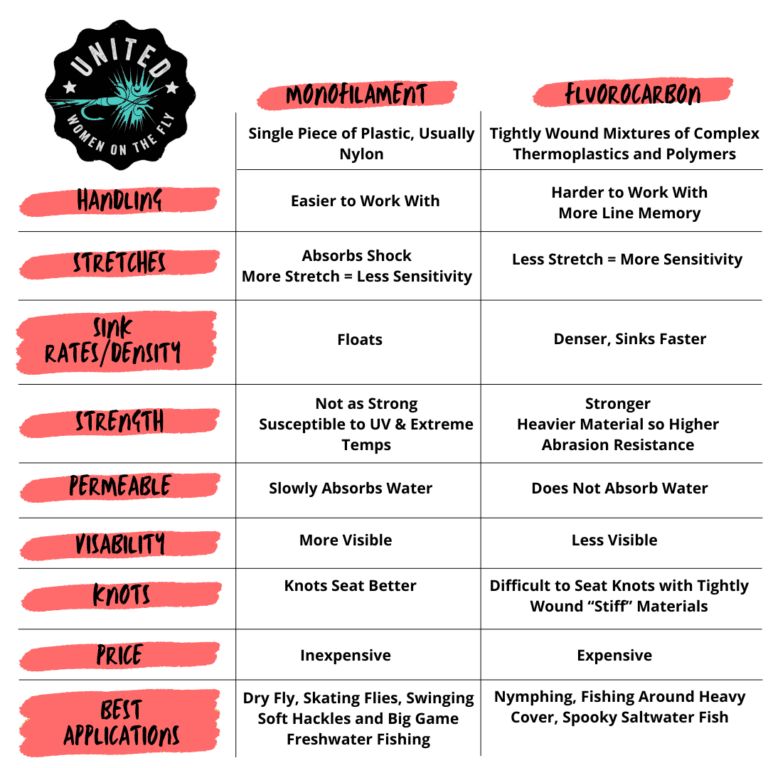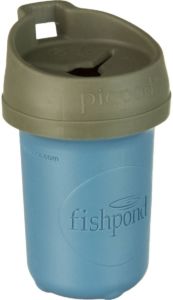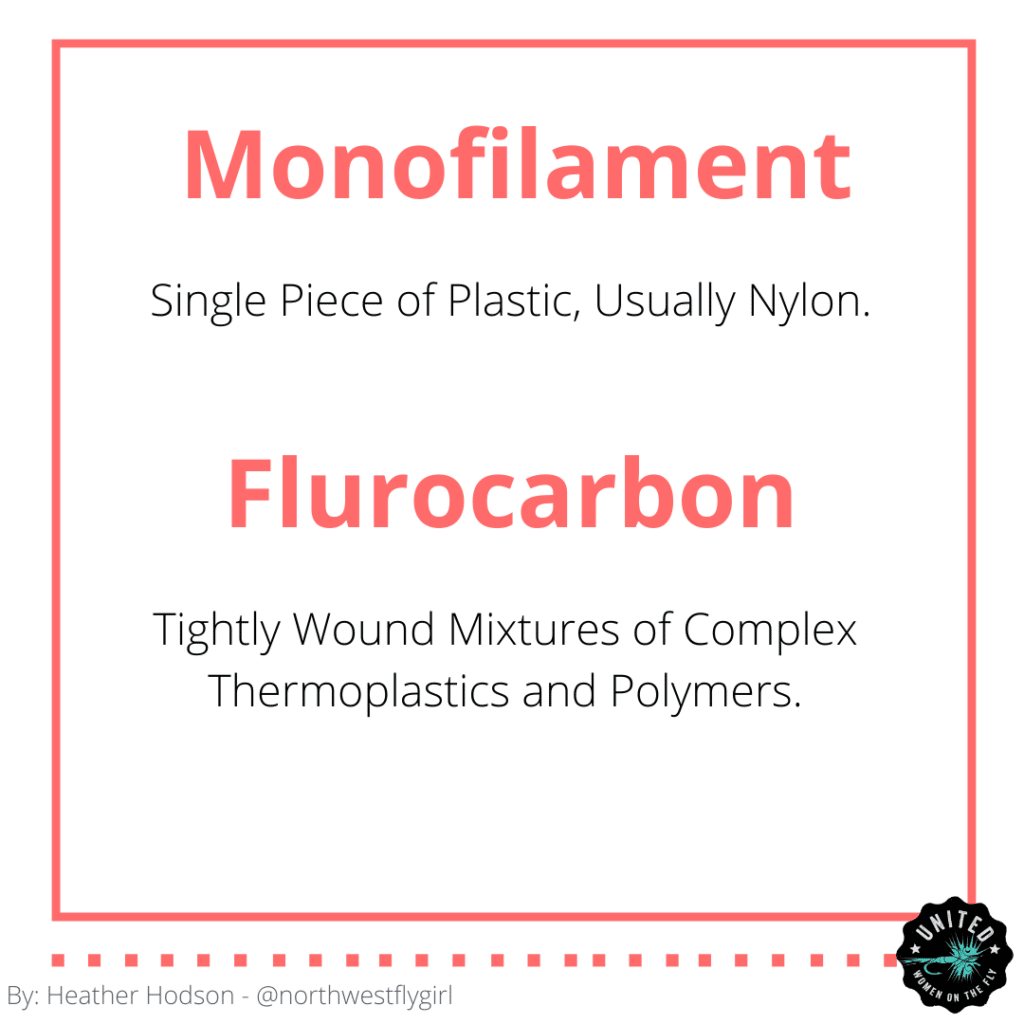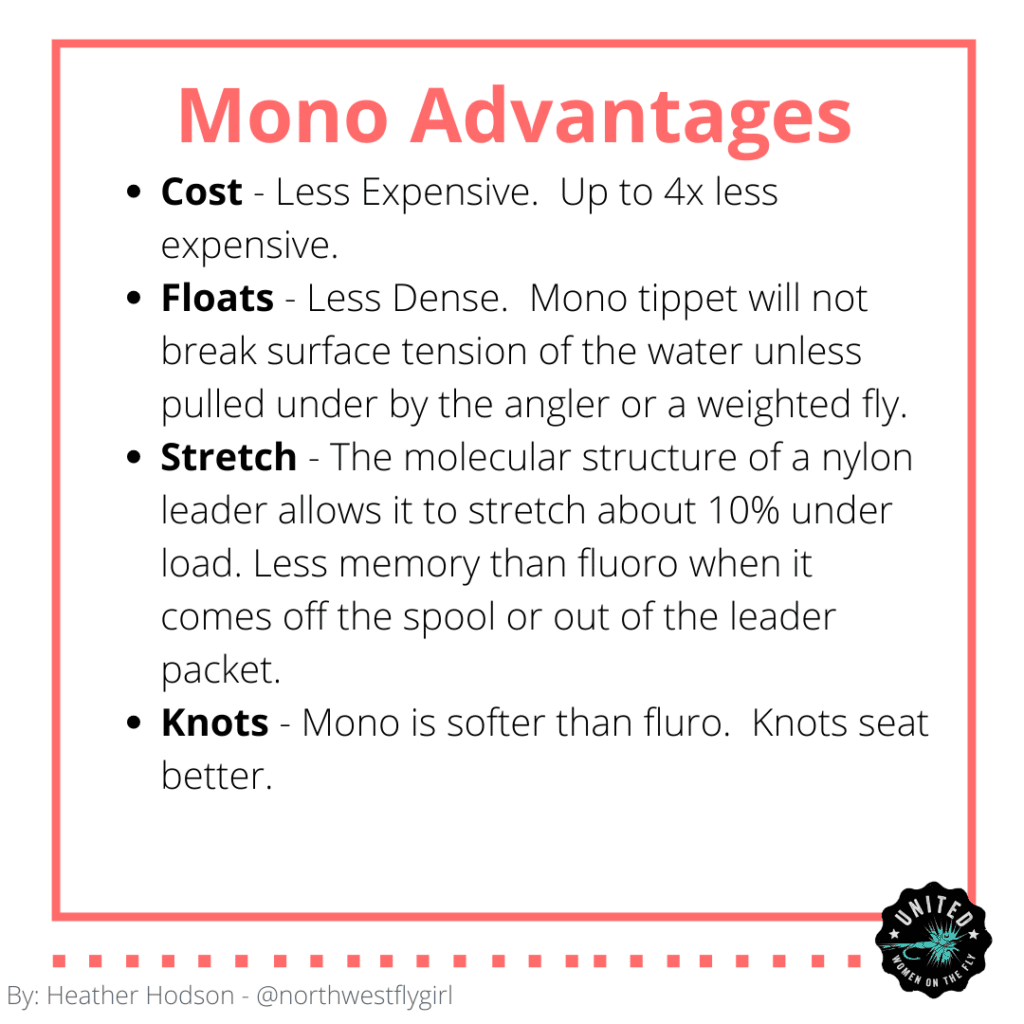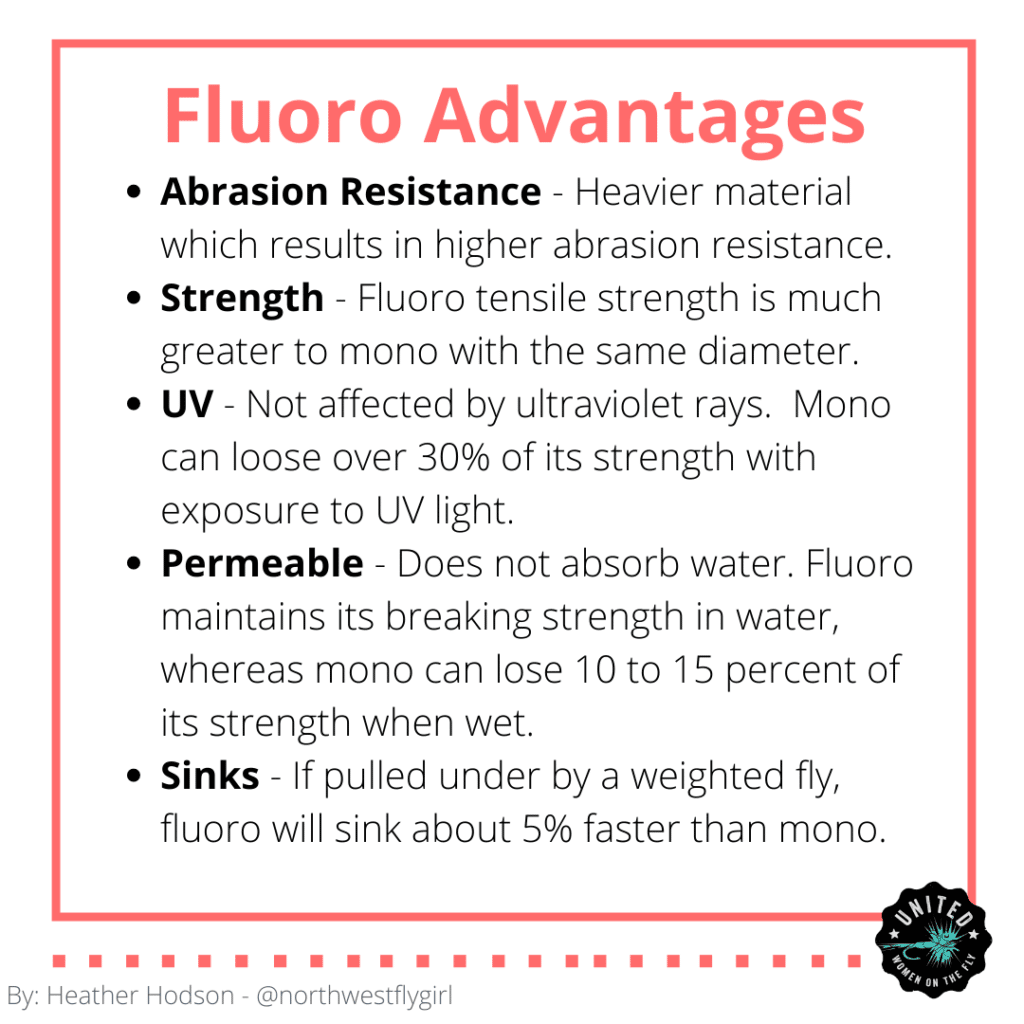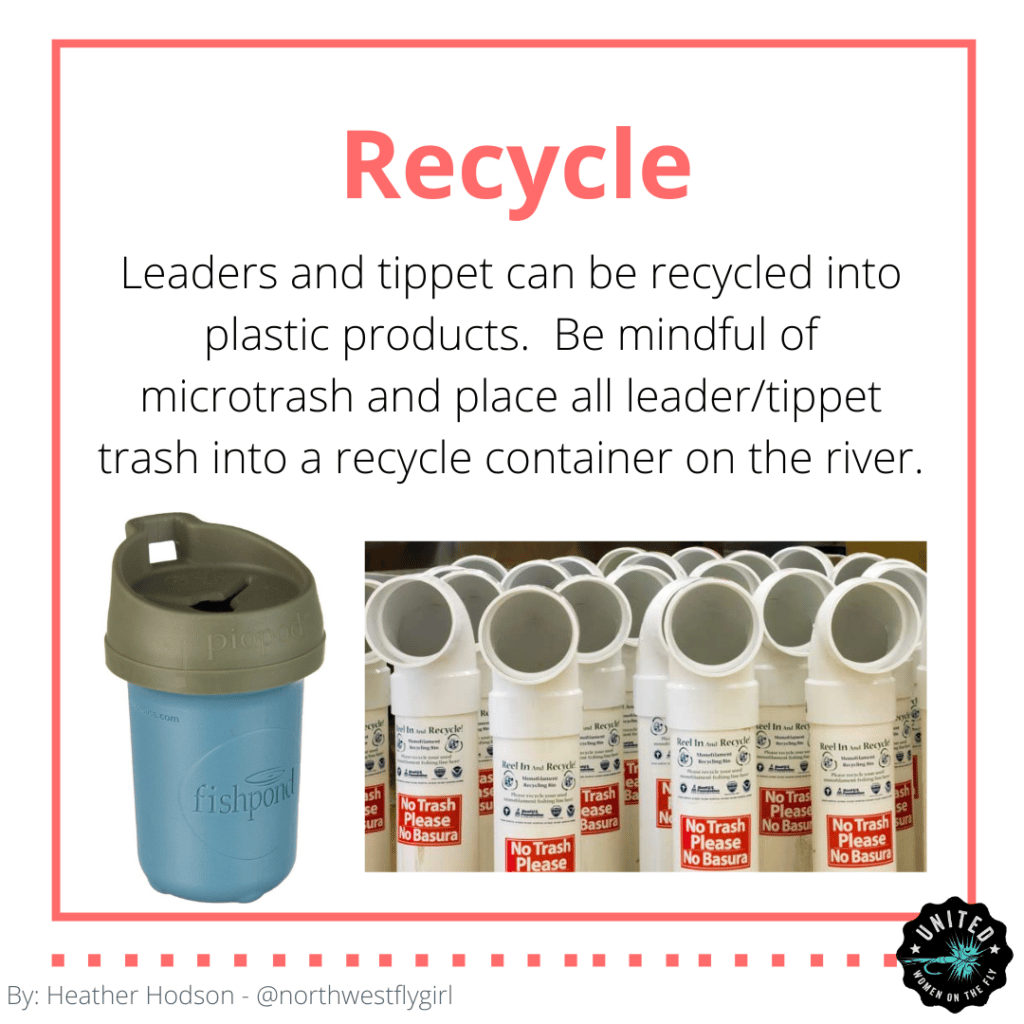What type of tippet to use?
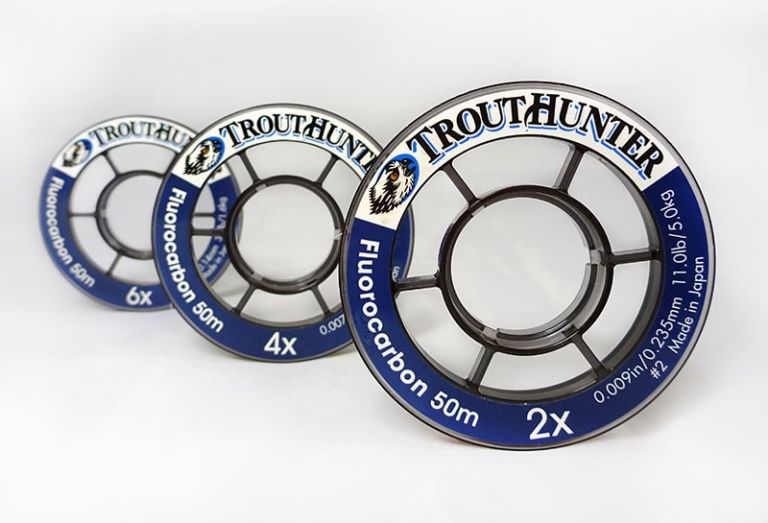
Check out the United Women on the Fly YouTube Channel for instructional videos. We also recommended Animated Knots and Orvis for other knot tutorials. Check out our Online Fly Fishing Classes from more virtual instruction on this and so much more.
Monofilament advantages
- Cost – Less Expensive. Up to 4x less expensive.
- Floats – Less Dense. Mono tippet will not break surface tension of the water unless pulled under by a weighted fly or by the angler.
- Stretch – The molecular structure of a nylon leader allows it to stretch about 10% under load. Less memory than fluoro when it comes off the spool or out of the leader packet.
- Knots – Mono is softer than fluro. Knots seat better.
Fluorocarbon Advantages
- Abrasion Resistance – Heavier material which results in higher abrasion resistance.
- Strength – Fluoro tensile strength is much greater to mono with the same diameter.
- UV – Not affected by ultraviolet rays. Mono can loose over 30% of its strength with exposure to UV light.
- Permeable – Does not absorb water. Fluoro maintains its breaking strength in water, whereas mono can lose 10 to 15 percent of its strength when wet.
- Sinks – If pulled under by a weighted fly, fluoro will sink about 5% faster than mono.
Recycle
Leaders and tippet can be recycled into plastic products. Be mindful of microtrash and place all leader/tippet trash into a recycle container on the river.
Fluorocarbon Myth
Fluorocarbon sinks so you can’t dry fly fish with fluorocarbon.
Both fluoro and mono leaders will not break the river’s surface tension. If pulled under by a weighted fly or by the angler, fluoro will sink about 5% faster than monofilament.
Dry Fly Fishing
Many choose monofilament for casting dry flies or swinging soft hackles. A thinner and softer tippet will allow a fly to behave more naturally on the water. Fish the longest dry fly leader you can cast and think about drag free drifts.
Euro Nymphing
Due to fluorocarbon being tightly packed molecules, there is less stretch which transmits more energy than monofilament, giving more sensitivity. Many use thin diameter tippet as it has less surface area and will sink faster.
Salt Water fishing
Many use best fluorocarbon leader and tippet for its abrasion-resistance, tensile strength, and resistance to UV rays.
